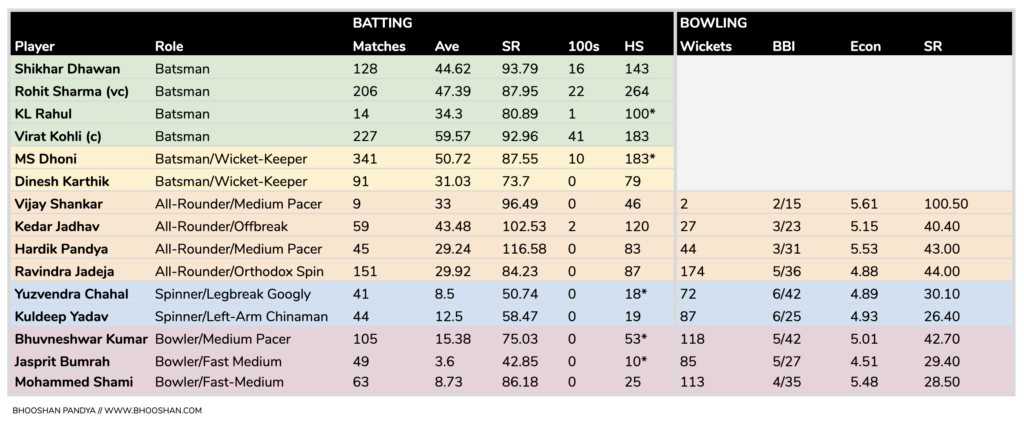The BCCI just announced a provisional team for India that would take on the best teams in the hope of lifting the 2019 ICC Cricket World Cup, and I feel, they have picked a decent team. Unlike the last time when we won, the matches this time are in a round-robin format so I’m expecting some fierce contest. There were no surprises as far as the composition of the team was concerned but the batting lacks depth. I feel they’re short of a specialist batsman in the English conditions which would mean there’s too much reliance on the middle order, half-bat-half-bowler batsmen like Jadhav, Shankar and Jadeja. Sparing a thought for Vijay Shankar who has been pushed into the spotlight for no reason, but his lack of ODI experience just pales in comparison to Ambati Rayudu for the big stage matches such as the world cup. I think Rayudu’s selection would have made a huge difference when you consider the vulnerability of opening pairs to the seaming balls in the English conditions. And it’s still a possibility because this is just a provisional team.
Let us look into the details. Not only have England changed as a world-class team but if you look at how the pitches in England have behaved since the last world cup and analyze them broadly from the perspective of the home series you’ll realize the gravity of what I’m talking. It’s noteworthy, that there have been no less than 20 occasions in the English conditions where teams have posted 300+ totals, most significantly, 3 of those high-scoring ODIs have been 400+ totals. Under the context, I am baffled with the logic of going to an important tournament with a batsman short. Rayudu could have provided that extra leeway in the middle-order whilst chasing 300+ scores or when the batsmen at the top are struggling. His average of 47.05 in 55 ODIs with three 100s and a strike rate of 79.04 makes him an indispensable no.4 of the Indian cricket team. Conversely, India’s dependency on all-rounders is a worthy gamble given the fact that the England middle-order has promoted the likes of Jason Roy, Jonny Bairstow, Jos Buttler, and Moeen Ali. It remains to be seen how our all-rounders manage the world cup expectations playing on their merits. I will be tuned in!

